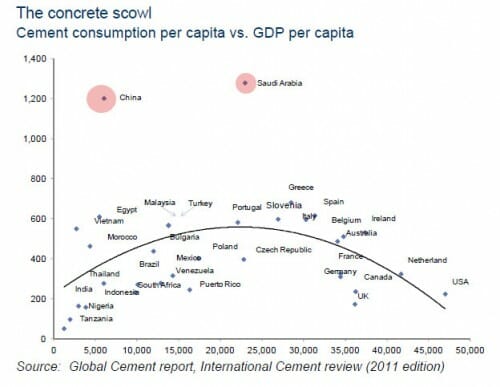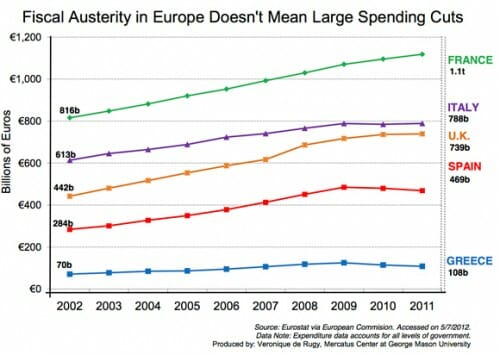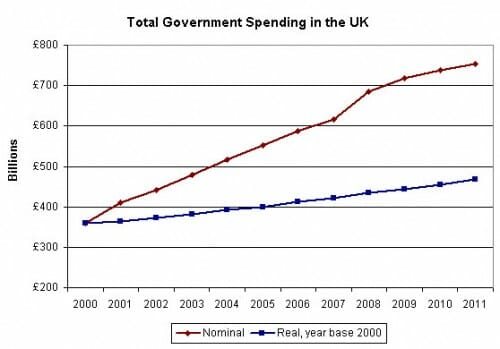Well, it looks like the NHL may have a buyer for the Phoenix Coyotes. I have not seen all the terms, but the problem in finding a buyer has been this: based on comps from other recent sales (e.g. Atlanta) the price for sunbelt teams is something like $100 million max, but the NHL has promised its owners it would not sell it for less than $200 million. The NHL has to find a sucker, and if billionaire buyers are not willing to be a sucker, then they have to find a third party sucker to just kick in $1oo million of present value to make the deal work.
Enter the city of Glendale. It has tried very hard on multiple occasions to be that sucker, and only was stopped from doing so by efforts of the Goldwater Institute to enforce a state Constitutional injunction on corporate welfare.
Glendale has apparently found a new way to subsidize the transaction by promising to pay an above-market stadium management fee. I have talked to some sports executives, including one very familiar with this stadium, and they have all said that in a free market, a third party might take the stadium management contract for free, because though it carries operational costs, it also yields offsetting revenues (like stadium rentals for concerts).
By paying an above-market rate for stadium management services, Glendale can provide a corporate subsidy but retain the fiction that this is a service contract rather than crony welfare. Over the last two years, Glendale has paid the NHL $25 million a year in stadium management fees, a payment everyone understands to actually be a subsidy to keep the team in town.
I presume the new buyer has met the NHL's $200 million price tag. But that is obvriously overpaying. So Glendale is going to kick a bunch of money back to the buyer to make it work, in the form of $306 million in stadium management fees. Via the Sporting News:
Longtime Glendale city councilor Phil Lieberman on Monday, in an interview with Sportsnet.ca, estimated that arena management fees paid by the city to Jamison under terms of the deal would total $306 million over the next 21 years, or an average of $14.6 million. A large chunk of that money, Lieberman says, is front-loaded, with Glendale on the hook for $92 million over the next five years. Nearby University of Phoenix Stadium, home to the Arizona Cardinals of the NFL, carries a $9.2-million management fee annually.
By the way, University of Phoenix Stadium is far larger and more expensive to operate, so one would expect the Coyotes arena management payment to be less than $9.2 million. And the $9.2 million, since it comes from Glendale as well, likely has a subsidy built in. But let's for a second assume something like $8 million a year is the high end for what a market rate for such a contract would be. This would be $168 million over 21 years, implying $138 million minimum in subsidy built into the management contract. There you go, there is the sucker payment to make up the difference between market value of the team and the NHL's price.
In fact, according to numbers at the WSJ, the city would have been better off leaving the stadium empty and just paying off the note (and they certainly would have been better taking Jim Balsillie's offer to move the team but help them pay down their note).
The NHL has announced a tentative sale to a group headed by former San Jose Sharks executive Greg Jamison, under terms that would essentially institutionalize Glendale's commitments. Under the proposal that the NHL has laid out for city council members, the city would continue paying an arena-management fee that would average about $14.5 million a year.
On top of the city's average $12.6 million in debt service, that amounts to annual expenses of about $27.1 million—to be offset by anticipated Coyotes-related revenue of $14.2 million, according to projections by Glendale's city management department. That adds up to a projected annual loss for Glendale of $12.9 million.
Of course, Glendale wants to keep the team because it cut a crony deal with a few real estate developers to build a retail and condo complex around the stadium. Of course, these ventures have also gone bankrupt. So the city is trying to bail out and keep a bankrupt hockey team to sustain an already bankrupt retail developer.
The logic of course is that Glendale wants to attract retail businesses to Glendale from nearby Peoria and Phoenix. But in the end, they are just messing up their own goal:
Some Glendale business owners may also oppose the deal, including David Kimmerle, owner of Sanderson Ford car dealership in Glendale. A longtime sponsor and fan of the Coyotes, Kimmerle felt betrayed when Glendale officials recently proposed raising the city's sale tax, in large part to support the cost of the team. The proposed increase would make a $30,000 car on Kimmerle's lot $330 more expensive than in the neighboring suburb of Peoria. "No one is going to pay a premium to shop in Glendale," Kimmerle said. "If it is choosing between the Coyotes or a business that is been in my family since 1955 and employs 500 people, I have to choose my business."
So, which would you bet on: That retail buyers will choose a location based on prices and taxes, or based on its proximity to a hockey team? Glendale is betting hundreds of millions of dollars its the latter. Which is why they are idiots.
Oh, and those Goldwater folks. Per the Sporting News article:
As for Goldwater Institution opposition to the deal, the league, Jamison and Glendale are aggressively striving to craft a sale that avoids Goldwater opposition and possible legal action.
And how are they doing this?
The NHL, city and Jamison are also not producing public documents on their deal so they can avoid records falling into Goldwater's hands.
Your transparent government at work. Its not breaking the law if no one can prove it.






